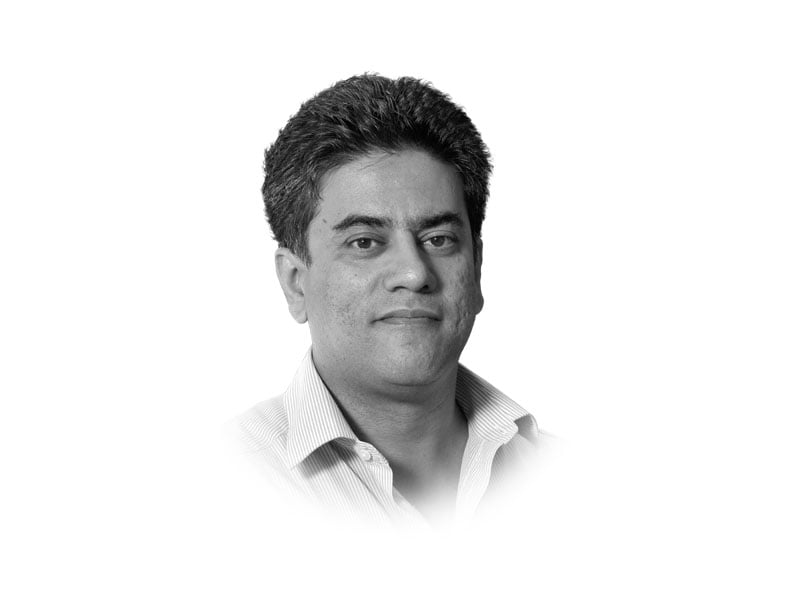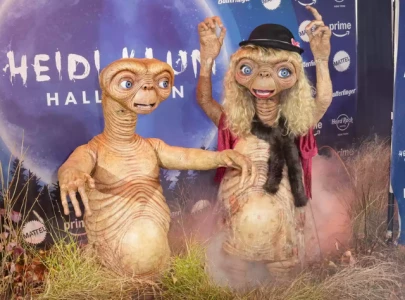
One day, possibly one of our budding filmmakers will make a movie on the lines of Madras Cafe on the role played by Pakistani forces in the war in Sri Lanka. The question, of course, that haunts us now is whether we will also be in a position to reverse our fortunes and extricate ourselves from our current predicament.
The important lesson, say the Sri Lankans, is that one should not give up. An interesting conversation with Mrs Baloch, our envoy to the pearl island, suggests that there is a sense of gratitude amongst the Sri Lankans for Pakistan. Possibly, now is the time for a role reversal with their experts coming to train our forces.
At the seminar organised by the International Committee of the Red Cross, hosted by the Jamia Millia in Delhi, what came out was that almost all countries in South Asia are facing conflict in one form or another.
If we keep aside the larger issues like Kashmir and the water and land disputes, there are the troubles in Nepal, fight for democracy in the Maldives, even peaceful Bhutan is not spared and neither is Bangladesh. Afghanistan remains hostage to conflict.
In all this, the role of the media is under question. In Maldives, for example, the media is divided clearly between those supporting one party or the other. That is why, when one party wants to protest, it burns down the media houses of the other.
Indian media is no example to follow, insist Indian journalists themselves. Apart from the culture of breaking news, there is one programme amongst a number of others, which specialises in Pakistan bashing. The host invites an unsuspecting guest daily, who is then pushed against the wall, more with accusations and less for the purpose of dialogue.
If we have Jasmine Manzoor, India has Karan Thapar, whose very body language suggests that he is out to maul the person with his questioning and aggressive attitude. This is not journalism. It is bullying.
We are not much better when it comes to the quality of some of our programmes.
Possibly, the bravest journalists in South Asia are the Sri Lankans and the Pakistanis, more so because of the conditions they operate in. Sitting down with either one comes up with stories of how they or their colleagues were attacked, pressured, censored or simply silenced.
The high point of my trip to Delhi was visiting the campus of Jamia Millia and interaction with the students there. It is a beautiful campus and despite the ongoing struggle within the faculty for a new VC, the level of studies here are better than most of what public universities in Pakistan have to offer.
In my talk with the bright young minds of their Mass Communication institute, one of the questions they asked me is how India was seen in our country. My reply: India is our point of reference for many things. We compare our state of economy, the public transport system (or lack thereof), the cost of medicines and other essentials, etc. to India all the time. At the same time, we blame India for many of our problems. But we also love to watch Indian TV, cinema and follow Indian fashions religiously. Hindi is now entering the vocabulary of many of our younger generation, which is an indication of our media consumption.
I then asked them a question: What do you think Pakistan is like? Their answer. Just like India except there is a little more violence. Two decades back, I had asked this question from my Indian cousins. And they had said they thought all women wore burqas and there were tanks on the streets (Ziaul Haq was president then). Thanks to the media, at least some perceptions have changed.
Published in The Express Tribune, October 14th, 2013.
Like Opinion & Editorial on Facebook, follow @ETOpEd on Twitter to receive all updates on all our daily pieces.
COMMENTS (4)
Comments are moderated and generally will be posted if they are on-topic and not abusive.
For more information, please see our Comments FAQ













I beg your pardon, it's not Karan Thapar, in seminar everyone was referring to Arnab Goswami of Times Now as the one with a bullying nature, who wants to know everything on behalf of whole nation.
Well written piece.
Editor@ET A balanced article as always, which makes an enjoyable reading. However, there are a few observations made which I tend to disagree. Karan Thapar a top TV personality in India, is just following the footsteps of Tim Sebastian who was well known for his hard and sometimes controversial grilling of his hosts on 'Hard Talk' show telecasted by BBC. If you have watched Tim, you might agree with my views. Your analysis on LTTE and role played by your army is spot on but why they are reluctant to do the same at home where thousands of precious lives have been lost and still counting to a barbarian outfit remains unexplained and raises many doubts. One cannot be both friend and enemy of terrorist organisations which India realised in the LTTE's case and quickly withdrew support and even fought them bitterly. The whole world including India is aghast on the passive role played by your military in dealing with TTP who has waged war on the state attacking both military and civilian targets and even the Army Chief is supporting talks with them rather than launching a decisive operation to protect its own citizens who are being slaughtered like sheep.
Karan Thappar - well summarized by you. What a bully! In India thuggery by media quacks like him passes for journalism.